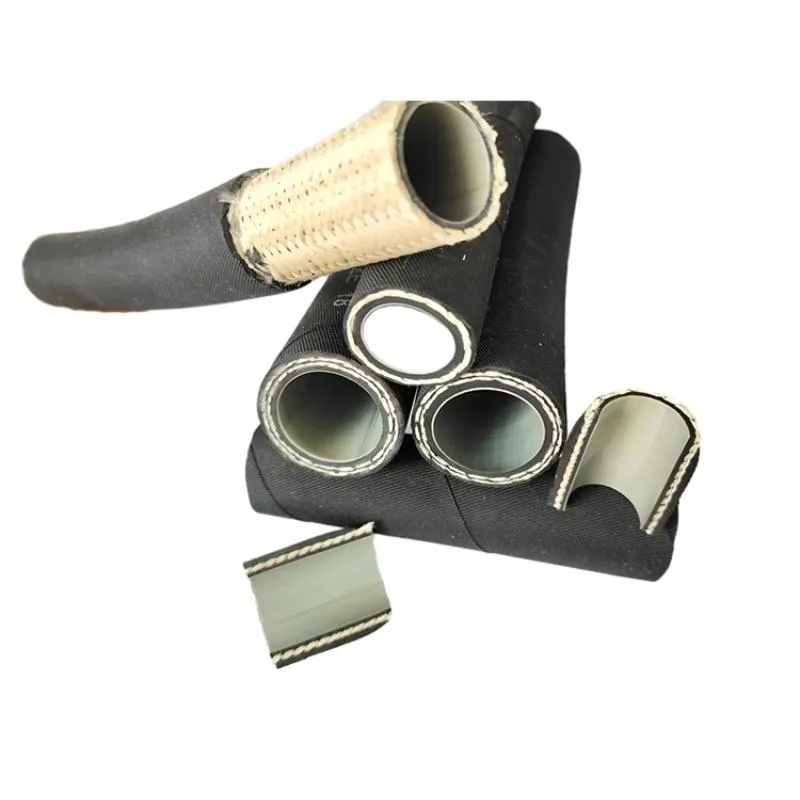Understanding the Benefits of Flexible Fuel Pipes in Modern Automotive Applications
Aug . 19, 2024 13:09 Back to list
Understanding the Benefits of Flexible Fuel Pipes in Modern Automotive Applications
The Importance of Flexible Fuel Pipes in Modern Automotive Engineering
In the ever-evolving landscape of automotive engineering, one feature that often goes unnoticed yet plays a critical role in vehicle performance and safety is the flexible fuel pipe. These components, designed to transport fuel from the tank to the engine, are essential for any modern vehicle that operates on liquid fuel, including gasoline, ethanol blends, and diesel. Given the variety of innovative materials and designs available today, flexible fuel pipes offer numerous advantages that enhance both vehicle efficiency and reliability.
Design and Functionality
Flexible fuel pipes are engineered to withstand the dynamic environment of an automotive system. They are typically made from materials like rubber, thermoplastic elastomers, or composites that can endure high temperatures, chemical exposure, and pressure fluctuations. The flexibility of these pipes allows for easy routing within the confined spaces of a vehicle's anatomy, accommodating the various movements and vibrations experienced during operation. This adaptability is crucial; vehicles naturally experience a multitude of stresses due to changes in road conditions, driving styles, and engine performance.
Advantages of Flexible Fuel Pipes
One of the primary advantages of flexible fuel pipes is their ability to reduce the risk of leaks. Traditional rigid pipes can be subject to cracks and breaks due to engine vibrations and thermal expansion. In contrast, flexible pipes can absorb these shocks, thereby minimizing wear and tear. Furthermore, their design can incorporate features like built-in fire resistance and anti-static properties, further enhancing safety. This is particularly vital in preventing fuel leaks, which can lead to hazardous situations both for the vehicle and the environment.
flexible fuel pipe

Additionally, flexible fuel pipes contribute to the overall efficiency of the fuel delivery system
. With a seamless design that allows for smooth fuel flow, these pipes mitigate turbulence and pressure loss, enabling better fuel economy. This efficiency is especially critical for vehicles designed to use alternative fuels, such as ethanol blends, which can have different density and pressure characteristics compared to standard gasoline.Environmental Impact and Future Trends
As the automotive industry increasingly shifts towards sustainability, the role of flexible fuel pipes becomes even more significant. With the rise of hybrid and electric vehicles, flexible fuel pipes are being adapted to accommodate new fuel types and innovative propulsion systems. They are also instrumental in the integration of biofuels and renewable energy sources into the fuel systems of conventional vehicles. By ensuring that vehicles can utilize a wider range of fuels, flexible fuel pipes help reduce overall emissions and promote a greener automotive landscape.
Future advancements in flexible fuel pipe technology may involve the incorporation of smart materials and sensors that monitor fuel flow and pipe integrity in real-time. Such innovations could lead to proactive maintenance solutions, identifying potential issues before they result in failures, thereby enhancing vehicle safety and reliability.
Conclusion
In conclusion, flexible fuel pipes are an indispensable component of modern automotive engineering. Their unique design and versatility not only enhance the safety and efficiency of fuel delivery systems but also support the industry's transition towards more sustainable practices. As technological advancements continue, the importance of these components will only grow, ensuring that vehicles are equipped to meet the demands of a changing world. Understanding and investing in the development of flexible fuel pipes will be key to the future of automotive design and environmental responsibility.
